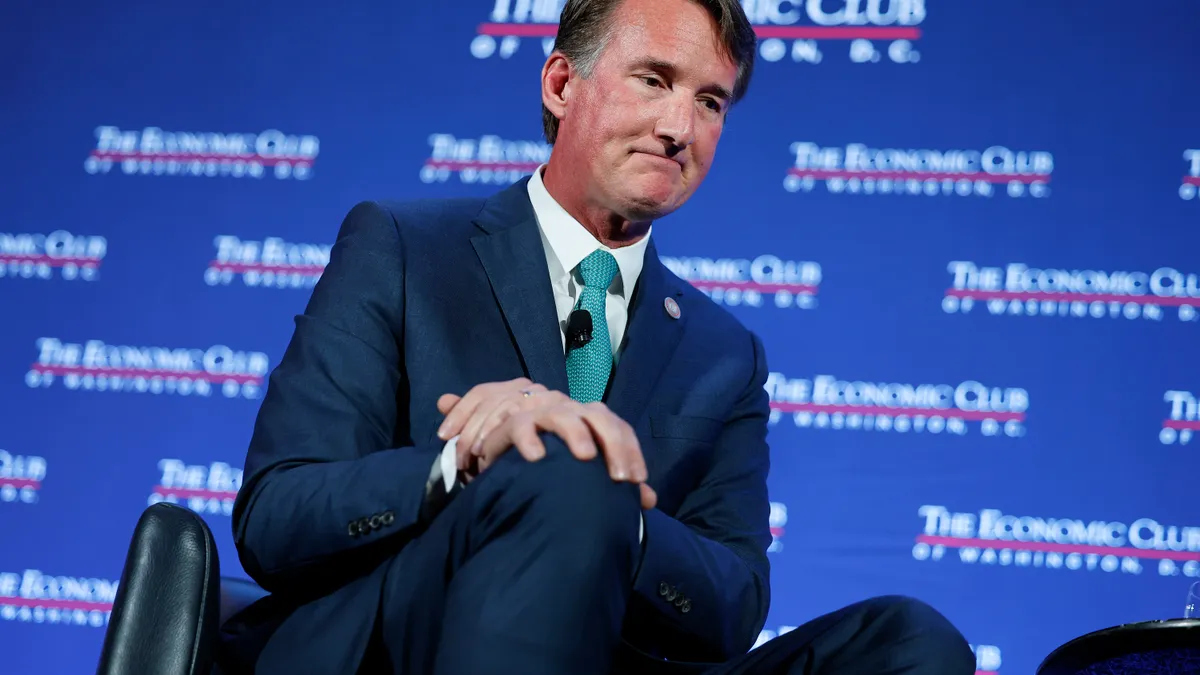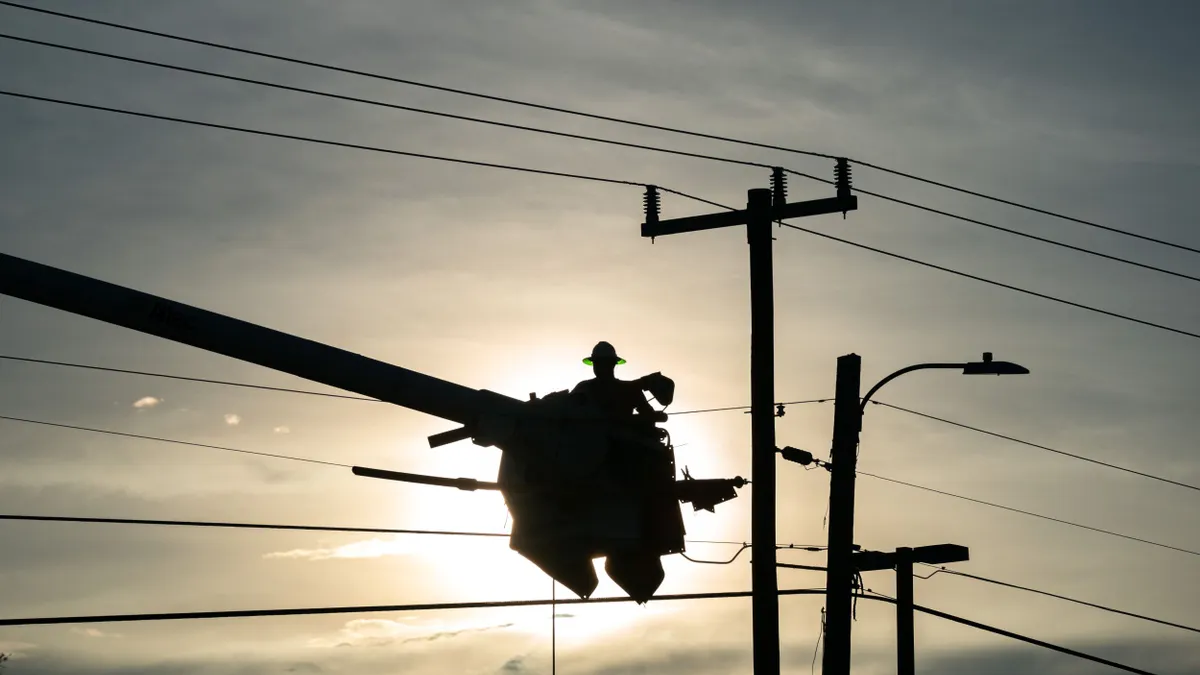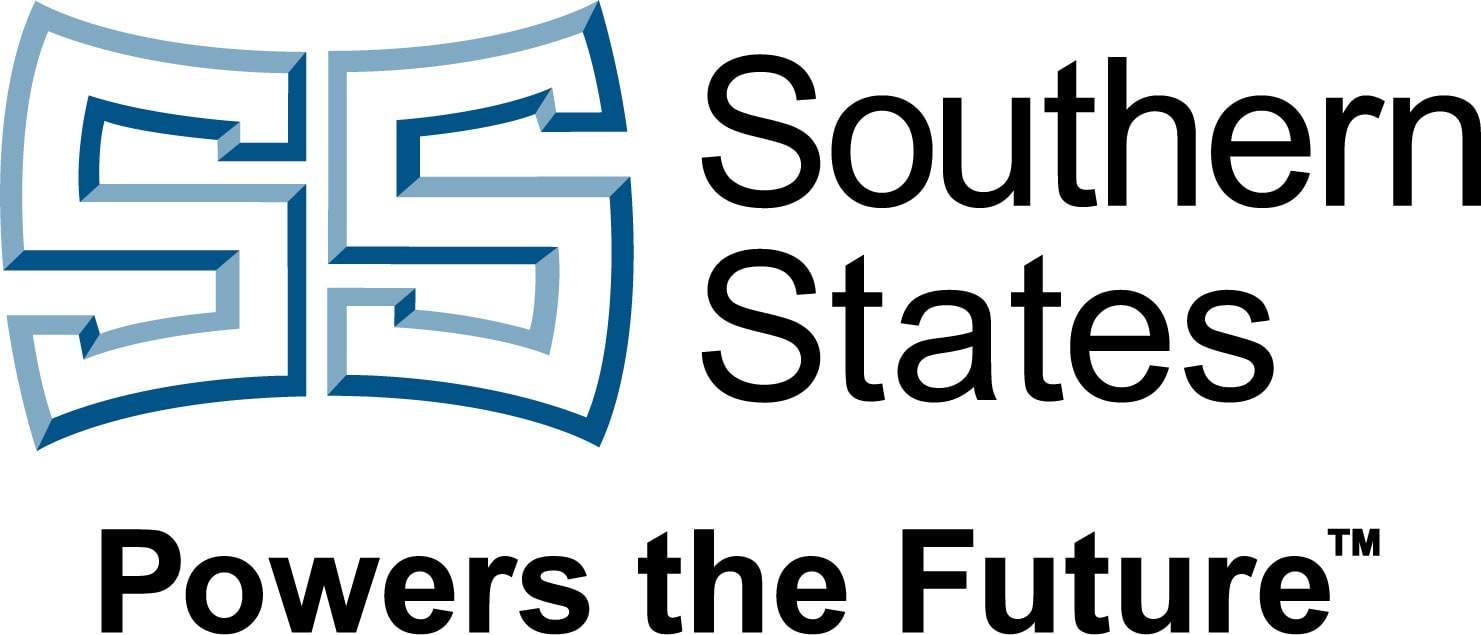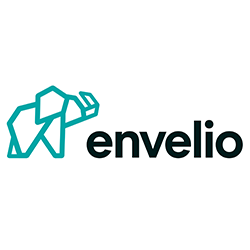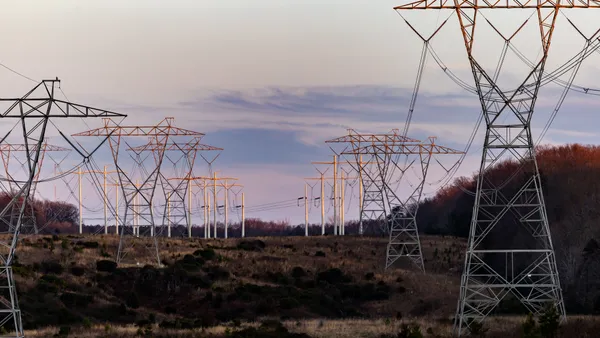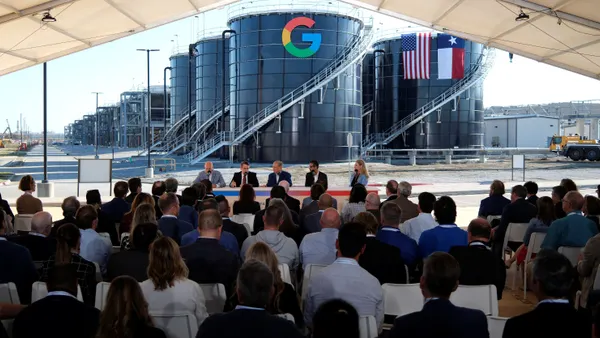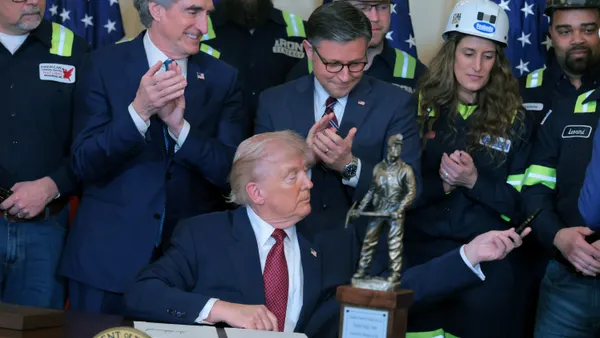Dive Brief:
- Dominion Energy’s Virginia subsidiary has until December to propose a virtual power plant pilot program with up to 450 MW of capacity under a state law signed May 2 by Republican Gov. Glenn Youngkin.
- Residential, commercial and industrial customers are eligible for participation in the pilot, which must include incentives for at least 15 MW of residential battery additions. By December 2027, Dominion must also propose an electric school bus program that would allow it to tap energy stored in idled buses’ batteries.
- The Virginia law incorporates elements of model virtual power plant enabling legislation developed by distributed energy advocacy group Solar United Neighbors. Similar bills have been introduced in a handful of other states.
Dive Insight:
The Virginia law, which was introduced as HB 2346/SB 1100, only applies to Dominion Energy Virginia.
The law requires Dominion to petition the State Corporation Commission, which regulates utilities, for the pilot by December 1 this year and propose a program tariff for residential, commercial and industrial customers by November 15, 2026. Participants may enroll directly with the utility or through a third-party aggregator.
Following the pilot’s conclusion on July 1, 2028, the commission must “evaluate the effectiveness of the pilot programs in providing grid services during times of peak demand” and begin developing a permanent program with set procurement targets and performance metrics.
The Virginia law is a “major bipartisan win,” said Shannon Anderson, virtual power plant policy director for Solar United Neighbors. Anderson’s title reflects SUN’s preferred terminology: “distributed power plant,” or DPP.
SUN’s model legislation and utility tariff incorporate elements of the ConnectedSolutions Massachusetts battery program, one of the few utility VPP programs to reach significant scale in the United States, Anderson said. Like ConnectedSolutions, the model tariff is open-access with no enrollment caps or expiration dates, allows customer-provided devices and third-party financing, and welcomes participation from third-party aggregators, she said.
“We don’t need more pilots,” Anderson said. “The grid needs DPPs as big as possible now.”
That’s the case in many markets, Anderson added, but distributed energy advocates say it’s doubly true in Virginia, the heart of the U.S. data center industry.
Youngkin “has staked out an ‘all-of-the-above’ approach to meeting Virginia’s energy challenges,” said Thad Culley, director of public policy for distributed solar and storage provider Sunrun. “By signing this bill, he is also making a call for ‘all-hands-on-deck.’”
“[This] legislation provides Virginia with a new and innovative tool to address distribution system challenges and capacity constraints, especially in an era of significant projected load growth,” said Angela Navarro, a former State Corporation Commissioner and current president of the clean energy advocacy firm ALN Policy and Law.
Solar United Neighbors developed the model legislation and VPP tariff to help state lawmakers set subsequent regulatory filings’ parameters and assure utilities that they have “political backing to think bigger,” Anderson said.
Despite historical risk aversion and lingering technical questions around orchestrating tens of thousands of distributed devices, utilities increasingly see the value of large-scale virtual power plants, Anderson said.
“There’s a shift [in mindset] that is needed, but it’s actually a lot smaller than people think it is,” she said.
Anderson began her current role with Solar United Neighbors in September. Since then, and especially since the beginning of the year, state policymakers and regulators “have demonstrated incredible enthusiasm for this model,” she said.
Virginia is the first state to adopt legislation based on this model. Lawmakers in several other states, including Oregon, Massachusetts, Illinois and California, have proposed similar legislation, Anderson said.
In addition, about a dozen state utility commissions have docketed regulatory proceedings related to VPPs, including one to advance implementation of last year’s DRIVE Act in Maryland and another in support of Xcel Energy’s plan to procure at least 400 MW of distributed solar and storage in Minnesota.


